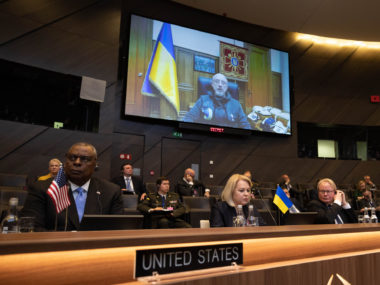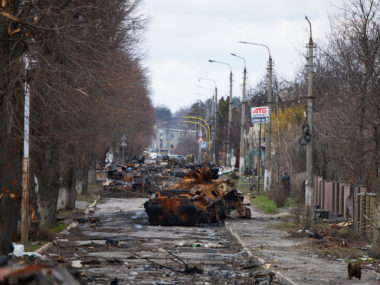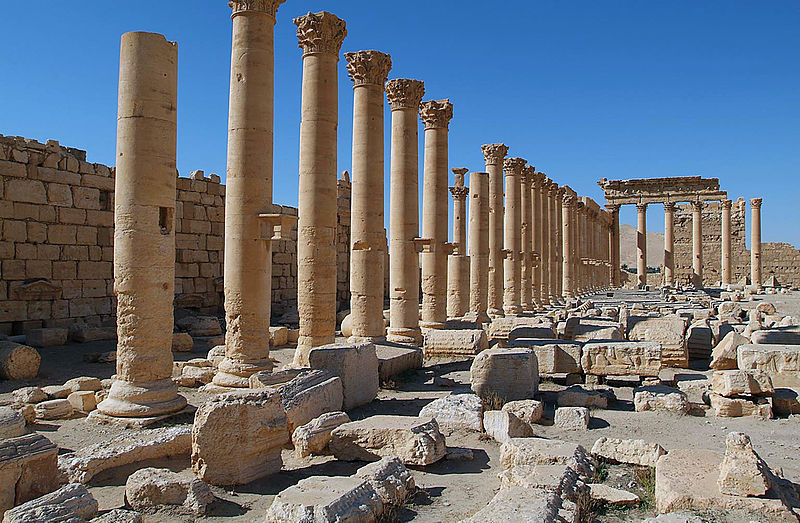Following up on Andrew Kydd’s terrific post on Israel’s thinking about the Iranian nuclear program, I wanted to respond to a few myths I heard while traveling through Israel lately. I want to make clear that these points are just impressions based on informal conversations with different folks.
- Israel can seriously disrupt Iran’s nuclear weapons program with air strikes.
My sense was that Israel’s armed forces do have the capability to take out most of Iran’s nuclear facilities, especially with help from allies. However, this would not at all permanently halt Iran’s nuclear program and would, at best, simply “mow the grass.” Credible reports suggest that Iran would be able to reconstitute the nuclear program within 2-3 years. What then? The argument is that they would be willing to do the same thing again and again until Iran stops its weapons program. This strikes me as unlikely to produce any favorable outcomes for Israel, while simultaneously being unbelievably costly and risky.
- The consequences of an Israeli air strike would be easy to contain.

Proponents of this view suggest that Israel would be able to deter or contain unconventional retaliatory responses to air strikes against Iran. This is dangerously overconfident. First, this retaliation would almost certainly occur against soft targets outside of Israel, where Israel would have a tough time containing the threat. Second, some analysts calculate that Hezbollah’s long-term interests would deter it from launching rockets into Israel in the aftermath of an Israeli attack on Iran, arguing that Hezbollah leader Hassan Nasrallah would view Israeli retaliation as prohibitively costly. I doubt that. Despite inflicting thousands of casualties on the Lebanese during the 2006 war, Israel lost. If anything, Israel’s actions in Lebanon spread support for Hezbollah, not the reverse. Moreover, defending against a Hezbollah-supported attack would be extremely painful for Israel, especially given a recent report arguing that Israel’s military is not prepared to fight the next war. Third, while Israel may be confident in the ability of its Iron Dome missile defense system to intercept rockets fired from the Gaza Strip an emboldened Hamas does not make Israel safer, particularly if Hamas gains ground in the West Bank’s October elections. Finally, the wider regional consequences of an Israeli strike are impossible to anticipate. But it is certain that an Israeli attack on Iran would increase anti-Israeli sentiment in many of Israel’s neighbors, including Egypt, where Israel has a peace treaty at stake. Although Egypt’s SCAF likely favors maintaining the peace treaty with Israel and likely shares Israel’s concerns over the prospect of an Iranian bomb, the Egyptian military council might be under greater pressure to make life difficult for the Israelis if the Israelis do attack.
- The international community is sending the signal that it is “OK for Israel to bomb.”
It was rather shocking to hear someone express this particular view. The basic story is that some people see the international community’s reluctance to take a stronger line toward Iran as a tacit permission for an Israeli strike. From the outside, this seems completely off base. First, the international community has ramped up pressure on Iran in recent months, presumably indicating that a diplomatic solution is still judged possible. Second, just because another state hasn’t yet expressed interest in the highly costly, risky, and low-probability-of-success option of attacking Iran is far from tacit permission for an Israeli strike. Perhaps the Israeli government has not heard a clear “no” from any major powers. But a lack of clear opposition to an Israeli strike doesn’t mean “go ahead and bomb.” More likely, the silence from Washington reads “we don’t know what to do either” or “we don’t have any better ideas.”
Despite these arguments, I came away from my recent visit with the sense that an Israeli attack on Iran is highly likely.
Why? Because of Israel’s visceral commitment to never allow another Holocaust. The Holocaust analogy underpins Israel’s view that the Iranian nuclear program is an existential threat; making the pace of Iranian nuclear development totally alarming, the seeming ambivalence of the international community eerily familiar, and the ultimate outcome of a nuclear-armed Iran totally unacceptable.
And therefore, right or wrong, if the international community is indeed interested in preventing an Israeli strike on Iran, then major powers must not only continue to take steps to slow or stop Iranian nuclear proliferation. Major powers need to also figure out ways to provide credible security guarantees to Israel regardless of what happens with Iran. Otherwise, Israel will likely try everything within its power to stop what Israeli hawks see as an existential threat — even if the operation is a disaster — rather than sit idly by and watch events unfold.







0 comments
Here is one way out (maybe the only way out in the long run) that nobody gives much thought to, but makes much strategic sense for both sides:
http://www.csmonitor.com/Commentary/Opinion/2012/0309/Attack-Iran-or-more-sanctions-A-third-option-Israel-and-Iran-forsake-nukes
Boaz, this is very much along the lines of Dima Adamsky’s excellent piece in Foreign Affairs (http://www.foreignaffairs.com/articles/137374/dmitry-adamsky/why-israel-should-learn-to-stop-worrying-and-love-the-bomb), in which he argues that Israel needs to figure out why it has a bomb in the first place. If Israeli grand strategy isn’t going to take deterrence seriously, then perhaps it would be better, as you suggest, for nobody in the region to have the bomb.
Waltz might even agree. Either everyone has the bomb or no one…
Boaz – Theoretically a viable idea but won’t happen.
1. Iran didn’t start down this path because of Israel’s nuclear arsenal.
2. Iran would only agree if this is seen as Israel loss and Israel cannot afford further international perspective that it is weakening. Israel would also see this as encouraging further acts by its enemies.
3. This Administration has no credibility as a guarantor to Israel after it unilaterally revoked the understanding allowing construction within pre-existing settlements.